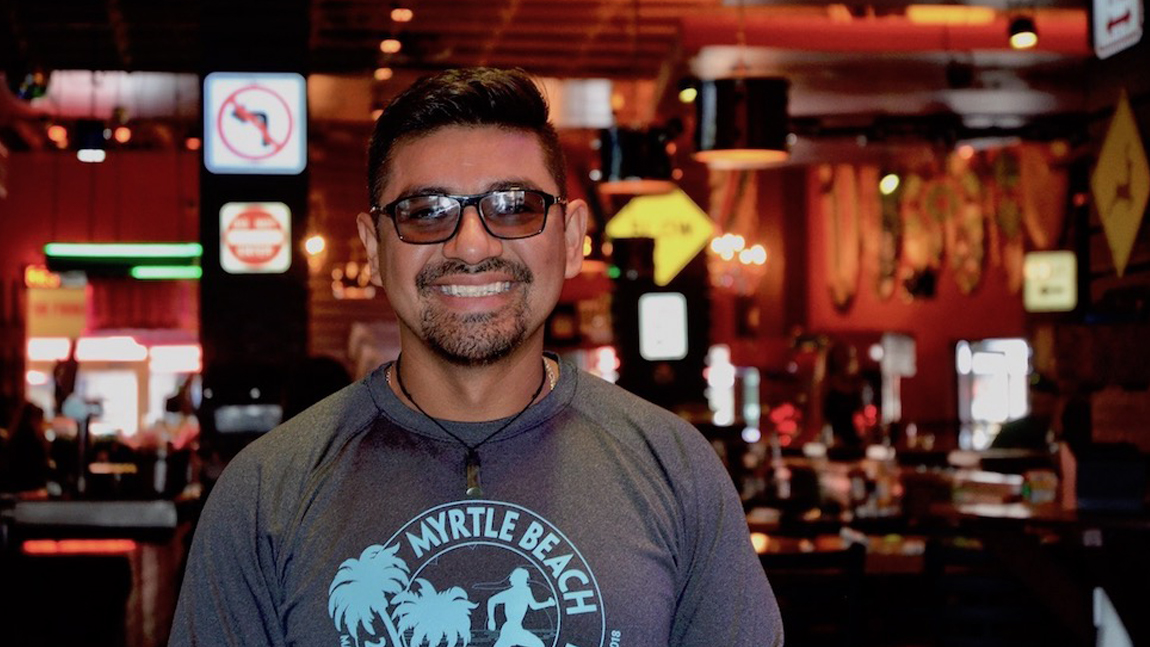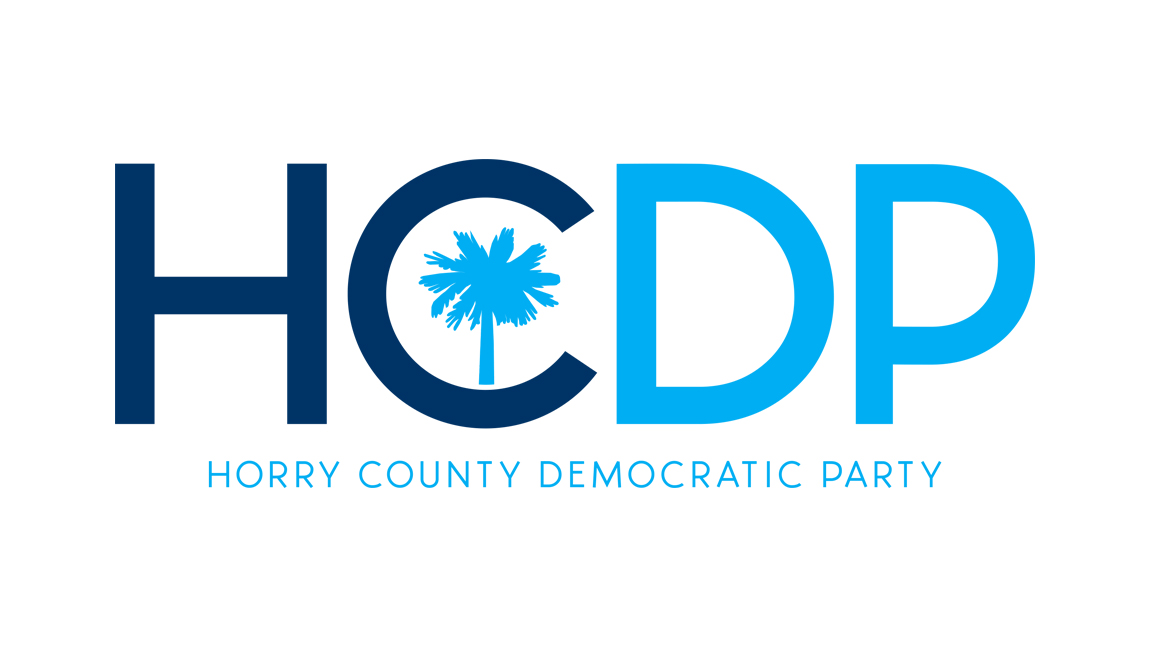Pictured: Carlos Loredo, a Myrtle Beach “dreamer” at his restaurant management job in Broadway at the Beach.
Nearly 800,000 undocumented “dreamers” who were brought to the U.S. as children are anxiously awaiting a decision by the U.S. Supreme Court on the Trump administration’s effort to end the Deferred Action for Childhood Arrivals (DACA) program that has allowed them to remain in America. DACA was initiated by President Barack Obama in 2012.
Deferred Action for Childhood Arrivals allows undocumented immigrants who came to the United States before the age of 16 to remain in the United States and provides them temporary protection from deportation, work authorization, the ability to apply for a social security number, and depending on the state, to get a driver’s license.
It does not provide a pathway to lawful permanent residence. Applicants have to prove they entered the U.S. before June 15, 2007, before their 16th birthday; that they were under 31 on June 15, 2012; that they were physically present since then; and that they were either in school, or obtained a certificate of completion from High School, or a GED, or were an honorably discharged veteran from the Coast Guard or Armed Forces of the United States.
Since 2012, these young people, many brought into the U.S. as small children by parents or relatives, have integrated themselves into U.S. society, attending school, obtaining jobs, learning English, forming friendships and relationships.
For many, America is the only country that they know. Many DACA recipients have been here since they were six years old or younger. But now, the conservative-majority U.S. Supreme Court will decide sometime during the 2020 election year whether or not to approve President Trump’s so far unsuccessful bid to end the program and thus bring an end to their dream.
So, for now, the uncertainty continues as these young men and women have no way of knowing from one day to the next if they will be allowed to remain in America or be sent back to their country of origin, one that many have not seen since childhood.
“Their future is in doubt,” said Myrtle Beach immigration attorney Donusia Lipinski. “Will they be allowed to fulfill their dreams? It could all be taken away.”
Background
On September 5, 2017, U.S. Attorney General Jeff Sessions announced that the government was terminating DACA. That same day the administration issued a memorandum directing that no more applications and applications for work authorization would be approved.
Multiple lawsuits challenging that action were filed across the county. Two U.S. district courts halted the government’s termination of DACA and required the U.S. Citizenship and Immigration Services (USCIS) to continue accepting DACA applications from individuals who have previously had DACA.
A third U.S. district court ordered the government to follow the original 2012 policy of not sharing DACA recipients’ private information for enforcement purposes, and a fourth U.S. district court twice issued orders striking down the termination of DACA and reinstating the original program.
That stay postponed the effective date of portions of the court’s order requiring USCIS to accept DACA applications regardless of whether the applicants previously had DACA.
Then, on May 1, 2018, Texas and six other states filed a lawsuit in the U.S. District Court for the Southern District of Texas challenging the 2012 DACA program and asked the court to issue a preliminary injunction stopping USCIS from handling applications while the lawsuit is pending.
In August, the court denied the request and so the DACA program remains in effect and individuals who have or previously had DACA protection may apply for renewals.
But determined to end the program, Trump’s Justice Department has asked the Supreme Court to expedite consideration of its request to throw out the three lower court rulings that blocked the administration’s 2017 plan to end DACA. With the high court’s decision in late June to consider the matter, arguments and a ruling presumably would come sometime before June 30, 2020.
Thus, until a decision is reached, these young people, more than 6,000 of whom live in South Carolina, are simply in limbo.
“They are like targets,” said Lipinski. “The U.S. doesn’t have their backs. Despite all the promises made by the government, they have nothing.”
Advice to ‘Dreamers’
As a result of this uncertainty, Lipinski and other immigration legal advisors, urge DACA recipients to waste no time in applying for their extensions, which would last for another two years – beyond the current term of the Trump administration.
“People should apply before 120 to 150 days before expiration of their current DACA protection,” said Lipinski. “But we are advising people to apply a little bit earlier because they don’t know how long this is going to last.”
For now, U.S. Citizenship and Immigration Services (USCIS) will continue to accept DACA applications from individuals who currently have or previously had DACA. However, their fate remains uncertain, and the National Immigration Law Center encourages them to consult with an attorney or Board of Immigration Appeals-accredited representative and decide as soon as possible whether to submit renewal applications.
While Lipinski says by far the majority of “dreamers” are productive, law-abiding residents in general, she urges them to be especially careful not to draw attention due to any type of infraction, including even a faulty taillight.
“If you are in a car, even though, not the driver, you could get in trouble if the driver is intoxicated or has drugs. Know who the driver is, whenever you get into someone else’s car,” she said. “Minor infractions, however, such as a bad taillight alone, will not strip a person of their protected status. But, anyone with any kind of significant misdemeanor conviction, should consult a lawyer, even if the conviction is expunged.”
“If you have a DUI you can lose your DACA protection and be removed,” she cautioned. “So, we advise our clients to not hang around others who party loud or not to be in a car with somebody who does. People who get a DUI are considered a threat to public society. This is your life and you are removable if you are reckless and get into trouble. Follow the law is the best advice.”
Spousal abuse or even getting into screaming matches or fights with a spouse or domestic partner can result in the police being called, she added. “Domestic violence or abuse reflects a person’s good moral character, and a conviction of domestic violence or abuse could mean the return to a country that is foreign to them.”
If Trump succeeds in killing the DACA program, it will impact more than just those individuals involved. There would be a significant economic impact to our nation and our economy.
An estimated 685,000 workers would be removed from the nation’s economy, resulting in a loss of $460.3 billion from the national Gross Domestic Product (GDP) over the next decade. In addition, $26.4 billion in Social Security and Medicare payments would be lost, and businesses would suffer $3.4 billion in unnecessary turnover costs.
In the Palmetto State, DACA has allowed more than 6,400 young people to come forward, pass background checks, and live and work legally in the U.S. In our state, DACA recipients have had their protection renewed by the U.S. Department of Homeland Security nearly 5,400 times. And, ac
cording to the Center for American Progress, ending DACA would cost South Carolina nearly $252.1 million in annual GDP losses, part of the $460.3 billion that would be lost nationally over the next decade.
A recent nationwide survey found that after receiving DACA, 63 percent of DACA recipients moved to jobs with better pay, 49 percent gained greater access to employment matching their education and training, and 48 percent moved onto jobs with better working conditions.
Meanwhile, an April 2017 survey of registered voters found that 78 percent of American voters support giving “Dreamers” the chance to stay permanently in America, including 73 percent of Trump voters. Only 14 percent of all voters and 23 percent of Trump supporters said they should be deported.
During the Democratic presidential candidate debates in late June, numerous candidates expressed strong support for extending DACA and providing a path to citizenship for “dreamers.” So, the results of the presidential election could play an important role in the future of this program, and the future of “dreamers” across the nation.

Immigration attorney Donusia Lipinski provides advice and counseling to “dreamers,” helping them navigate the complexities of immigration requirements.






